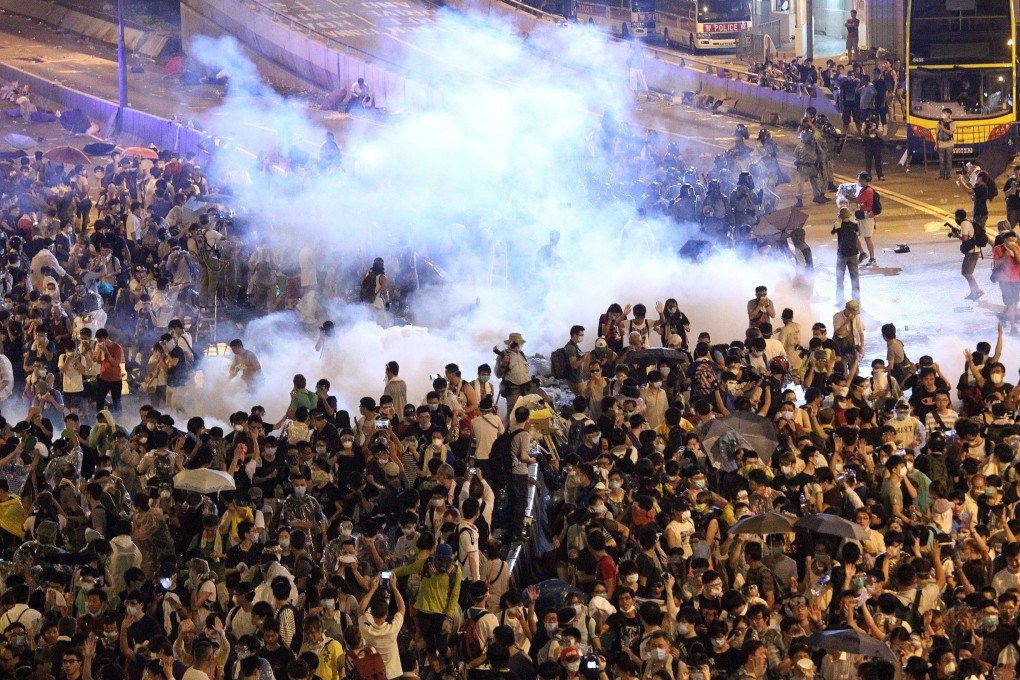Stocks set to fall at open, authorities pledge smooth market operations as Occupy protests extend
More selling expected as Occupy Central spurs investors to cash out, with the Hang Seng Index suffering biggest intraday loss in seven months

Hong Kong equities face fresh selling pressure today after investors were left reeling by the worst intraday fall in nearly seven months as thousands of demonstrators took to the streets in pro-democracy Occupy Central protests.
The Hang Seng Index yesterday dropped 1.9 per cent to close at a 10-week low of 23,229.21 points, after notching the biggest intraday loss of 2.46 per cent since February 4.
Fund managers expect the market to be volatile in the coming weeks, with retailers and property developers likely to bear the brunt of speculative selling on concern retail sales will suffer if protests drag on and fears the city's economic competitiveness will weaken because of political uncertainty.

Property shares were the biggest losers yesterday, falling 3.38 per cent on average across the sector, while finance shares traded in line with the broad market with a loss of 1.92 per cent.
Property companies were singled out in a March report by Swiss investment bank UBS as among the most vulnerable to financial fallout from Occupy Central protests, with Hongkong Land Holdings, the biggest landlord in Central, and Wharf (Holdings), which owns two of the city's most popular shopping malls, Harbour City and Times Square, seen as especially vulnerable.